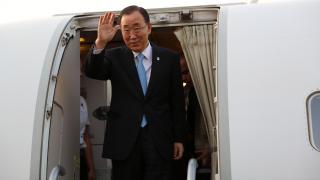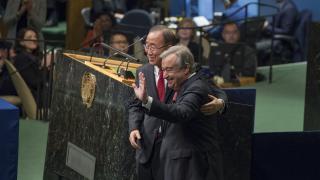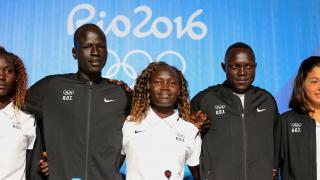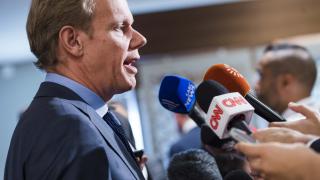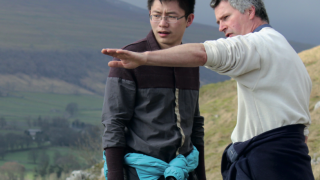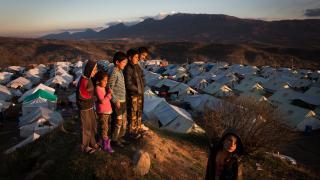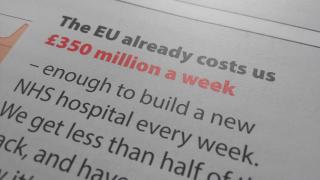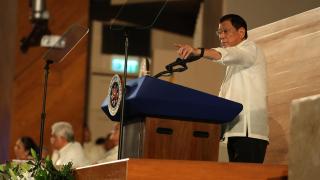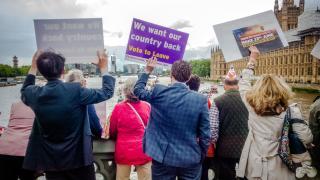In the last issue of this magazine, I raised my concerns about a creeping mood of nationalism and isolationism in the UK and beyond. It now feels like less of a creep, more of a lurch – the consequences of the UK’s departure from the European Union are beginning to sink in, the US elected a president who has declared the US “get[s] nothing out of the United Nations” and far-right parties look set to do well in a number of European elections next year. There can be no doubt that people across the developed world are feeling increasingly disconnected from global co-operation and from the post-war institutions that have protected all of us for so long.
I also shared with you UNA-UK’s Stand For campaign. This project engages people by simply asking them: what value do you stand for? People across the country gave responses such as “fairness”, “equality”, “happiness” and “human rights”. Over 2,100 of them joined our movement through this campaign and we reached thousands more on social media.
As a starting point, this worked well; it’s an accessible and personal way of talking about international co-operation and global issues that many find distant and abstract. But we want to take this conversation further. If you and I have values that we use to inform our relationships with others, shouldn’t we expect the same of our country on the world stage?
Last week, I commissioned the pollster ComRes to take our questions on values to a much bigger audience. They’re going to ask a representative cross-section of the British public how their own behaviour compares with how they want their government to act.
The questions in the poll present decisions from everyday life (for example, would you tell a friend that they were doing some- thing wrong? Would you look after a stranger?) alongside decisions that the UK Government needs to make on a daily basis (should it call out our allies on human rights abuses? Should it spend our foreign aid budget at home?). You can see and answer the full set of questions here.
We’re going to use the results to take our message beyond our usual networks by releasing them, and accompanying commentary, to the national media. We’ll also work with local UNAs to get analysis of regional breakdowns into local media.
This research will be a useful benchmark to ascertain what people want from their government when it comes to the UK’s relationships with other countries. We’ll use it to add weight to our other campaigns, underlining that voters want their leaders to act with integrity.
Of course, this is a bit of a gamble. We genuinely don’t know what the responses will be. What if there’s a disconnect between individual ethics and the way we want our leaders to behave? How much will we need to reevaluate our work if respondents say, for example, that they, as individuals, don’t care about strangers and neither should our government?
I believe that the results will show that fundamentally, people are progressive and inclusive, and expect their government to share these values. If they don’t, then we’ve got a much bigger job than we could have imagined.
Would you like to get involved? There are three ways that UNA-UK members and supporters can help.
First, you can strengthen our local voice. There are over 100 officially recognised local UNAs in communities and universities across the UK, engaging local groups with our national mes- sage. If you have one nearby, you can get in touch with them here. If you don’t, then how about setting up your own local group? It’s easy to do so (click here for information) and you’ll be joining a nationwide network of activists. And if you’re already part of a group, we’ll soon be helping you generate publicity by getting the results of our poll into your local media.
Second, sign up for refresher training and get equipped to be a local activist. UNA-UK’s Conference 2017 will take place on 20 May. The organising committee – elected by UNA-UK members – have developed the format of this event to allow participants to explore one of UNA-UK’s campaigns in more depth and to work with us on local activities and resources. You will also be able to pitch your ideas and find out more about the work of UNA-UK.
Finally, can you support us financially? We get no core funding from government, no financial support from the UN and we have no corporate sponsors. We are deeply grateful for the continued financial support from our members and readers – we rely on you to help us give a voice to people who believe that the UN is needed now more than ever.
Photo: copyright UNA-UK



